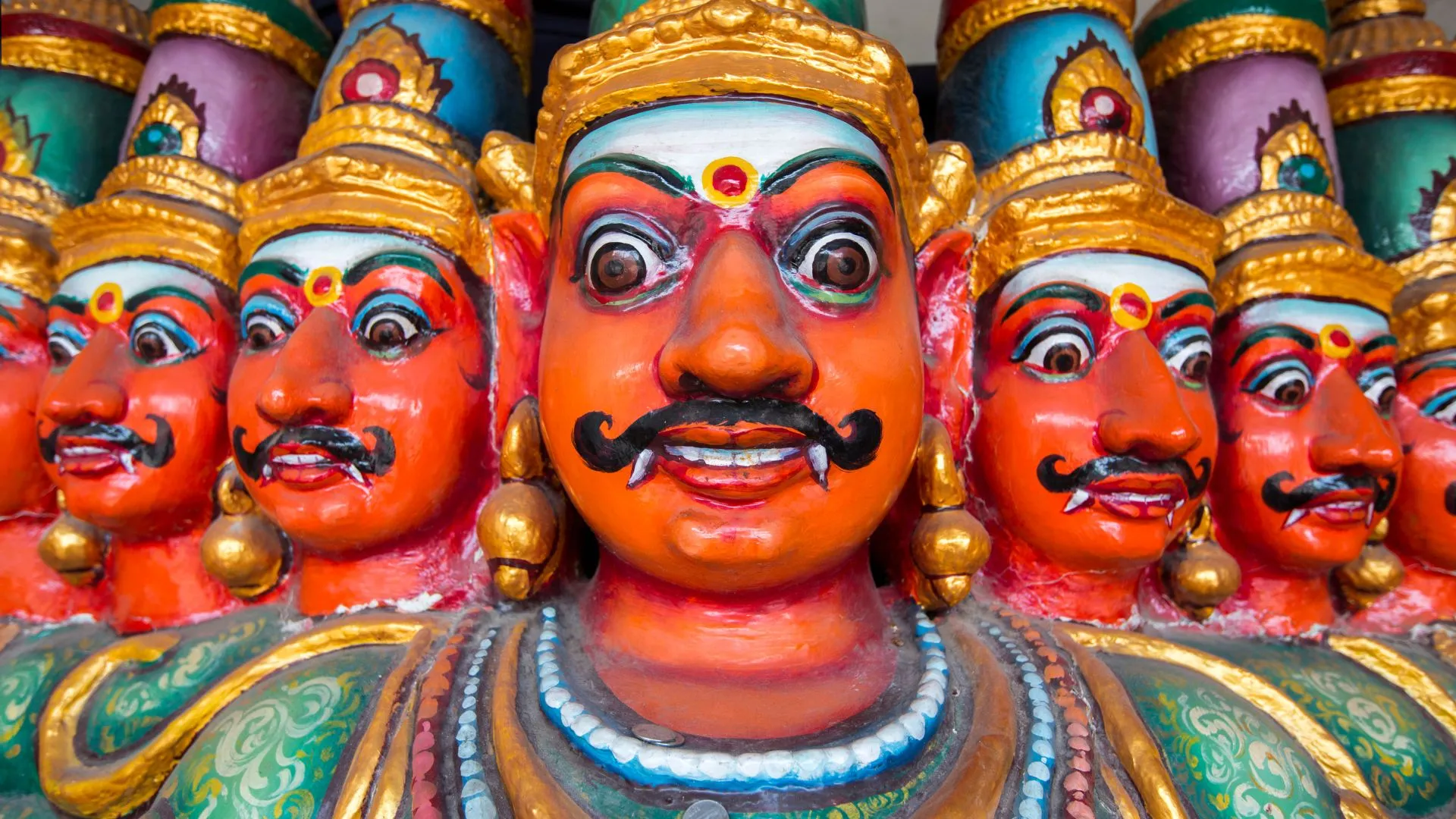Who is Ravana's Sister?


In the heart of Indian mythology lies a lesser-known tale, wrapped in the stories of grandeur and the battle between good and evil — the tale of Ravana’s sister, Shurpanakha. You may have heard of Ravana, the ten-headed demon king of Lanka, but have you ever wondered about the fierce, unapologetic woman who was his sister? Let’s take a journey back to a time where gods, demons, and mortals walked the earth together, and understand her story.
Shurpanakha was no ordinary woman. Born into a family of power, she was the daughter of Sage Vishrava and the Rakshasi (demoness) Kaikesi, making her Ravana’s sister by blood. While Ravana is infamous for his ego and strength, Shurpanakha was known for her fiery personality and sharp intelligence. She wasn’t your typical antagonist. Her story is filled with longing, rejection, and, ultimately, a thirst for revenge — emotions we all can relate to at some point in life.
Imagine her walking through the forests, her heart heavy with loneliness. Shurpanakha wasn’t a monster at first; she was a woman seeking love. It’s said that when she first saw Lord Rama, the prince of Ayodhya, she was struck by his divine beauty. In that moment, she believed she had found the love of her life. But her love wasn’t reciprocated, leading her down a path of destruction and despair. Haven’t we all felt the sting of unrequited love, even if in a much less dramatic fashion?
It’s in this forested setting that Shurpanakha’s story takes a turn. Consumed by her desire for Rama, she approaches him with a proposal, but her love is met with rejection. Rama, bound by his loyalty to his wife, Sita, gently refuses her advances. The pain of rejection is one thing, but when Rama’s younger brother, Lakshmana, steps in and humiliates her further by cutting off her nose and ears, her heartbreak turns into a rage that will change the course of the epic Ramayana.
Can you imagine the depth of her anger and sorrow? This act not only scarred her physically but also emotionally, igniting her desire for vengeance. She returned to Lanka, disfigured and humiliated, her fiery spirit now set on avenging her humiliation. It was this moment that sparked the chain of events leading to the abduction of Sita and the eventual downfall of her own brother, Ravana.
While Shurpanakha’s actions are often seen as the catalyst for the war between Rama and Ravana, her story is also symbolic of something deeper. In a way, she represents the untamed, raw energy of womanhood that refuses to conform. Shurpanakha dared to express her desire in a world where women, especially demonesses, were expected to remain in the shadows.
Her story evokes empathy. She wasn’t just a villain in Rama’s tale; she was a woman denied love and dignity. And in her story, we find a reflection of the struggle many women face — the struggle to be seen, heard, and loved for who they are. Shurpanakha’s boldness, though tragic in its consequences, forces us to think about the norms of society, both then and now.
Shurpanakha’s loyalty to her family was unshakable. After her disfigurement, it was her plea to Ravana, her powerful brother, that led him to kidnap Sita in an act of revenge against Rama and Lakshmana. But, as fate would have it, this family loyalty came at a devastating cost. Ravana’s decision to abduct Sita set off a chain of events that led to the great battle of Lanka, Ravana’s defeat, and the fall of an empire.
In Shurpanakha’s story, we see a raw portrayal of how love, loyalty, and revenge can intertwine to create both strength and destruction. It’s a reminder of the delicate balance between family ties and individual desires.
As we prepare for the upcoming festive season in 2025, it’s stories like these that resonate deeply with our love for culture and tradition. Shurpanakha’s tale is a reminder that every figure in mythology, whether revered or reviled, carries a depth of emotion that we can connect with even today. The strength of Shurpanakha’s spirit reminds us that there’s a powerful force within each of us, waiting to be acknowledged, whether through celebration, love, or even hardship.
At Phool, we believe in honoring these ancient stories as we celebrate modern festivals. The spiritual aura of festivals like Dussehra and Diwali is the perfect time to immerse yourself in the emotions these tales evoke. Our eco-friendly products, like essential oils, candles and incense made from sacred temple flowers, carry the essence of tradition and mindfulness into your home. As you reflect on Shurpanakha’s story, you might find new meaning in the rituals and festivities we partake in today.
Shurpanakha was the sister of Ravana, the demon king of Lanka. Her story in the Ramayana revolves around her unrequited love for Lord Rama and the revenge she sought after being humiliated by his brother Lakshmana.
Shurpanakha’s actions played a pivotal role in the unfolding of the Ramayana. Her humiliation led to Ravana’s decision to kidnap Sita, which ultimately resulted in the battle between Rama and Ravana.
Shurpanakha is often portrayed as a villain, but her story is more nuanced. She was driven by emotions of love, rejection, and revenge, making her character more complex than just ‘evil.’
Shurpanakha’s story reflects the timeless themes of love, rejection, and the consequences of revenge. It reminds us of the importance of understanding and compassion, even in the face of conflict.
At Phool, we honor ancient stories through our eco-friendly products that are rooted in tradition yet designed for modern lifestyles. From essential oils to incense made from recycled temple flowers, our products bring a sense of calm, spirituality, and cultural pride to your celebrations.
As you prepare for this festive season, let Shurpanakha’s story inspire a deeper connection to our cultural roots. May your celebrations be filled with mindfulness, warmth, and a sense of peace.